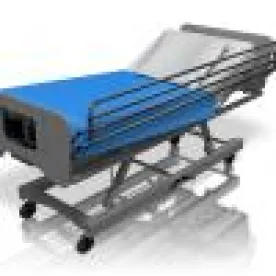On April 28, 2020, the Centers for Medicare and Medicaid Services (CMS) issued Frequently Asked Questions for Hospitals and Critical Access Hospitals regarding EMTALA (FAQs) as a supplement to the memorandum on the Emergency Medical Treatment and Active Labor Act (EMTALA)-focused Quality, Safety and Oversight Group memorandum analyzed in our On the Subjects here and here.
Hospitals have expressed continued concern regarding their ability to comply with the intricacies of EMTALA in the face of increasing emergencPastey department (ED) visits from individuals with potential Coronavirus (COVID-19) exposure or full-blown disease. The FAQs contain guidance for hospitals regarding which EMTALA requirements are still firmly in place and which allow for more flexibility. Certain of the FAQs will be of particular interest to hospitals.
IN-DEPTH
Patient Access and Constructive Dumping
CMS has emphasized that it is a violation of EMTALA for hospitals with EDs to use signage that presents barriers to individuals, including those who are suspected of having COVID-19, from coming to the ED, or to otherwise refuse to provide an appropriate medical screening examination (MSE) to anyone who has come to the ED for examination or treatment of a medical condition. However, the FAQs confirm that hospitals may use signage to inform individuals about the availability of COVID-19 testing or to provide directions to alternative sites on the hospital’s campus where MSEs are available, such as parking lot test sites. Whether individuals are seen for an MSE at an alternative site or in the ED, they should be logged in where they are seen. Individuals do not need to present to the ED before going to the alternative site.
Hospitals are also permitted to encourage the public to go to off-campus sites to be screened for COVID-19 instead of the hospital. Those off-campus sites must operate in accordance with the state or local pandemic plan, must be identified specifically by the hospital as the location to receive an MSE, and must have the capability and capacity to provide the required MSE. Normally, a hospital may not redirect patients to an off-campus alternative site under EMTALA, but CMS has permitted this action under Section 1135 waiver authority.
Screening and MSEs
All MSEs must still be performed by a qualified medical professional (QMP), which may include physicians, nurse practitioners, physician’s assistants or registered nurses trained to perform MSEs, acting within the scope of their state licensure law and approved by the hospital’s governing body. The FAQS identify that hospitals may request a case-by-case waiver under Section 1135 to allow MSEs to be performed by other personnel, including trained registered nurses or medical staff who were not previously approved by the governing body to perform MSEs.
The FAQs also clarify that patients who present to the hospital solely for the purpose of COVID-19 testing and who do not request treatment of a medical condition do not necessarily require an MSE under EMTALA, with the caveat that if a patient complains of or exhibits any symptoms of a medical condition, then that person should receive an appropriate MSE to determine whether an emergency medical condition exists in accordance with EMTALA
Telehealth
Of key importance given the nature of COVID-19 transmission, the FAQs note that an MSE may be conducted by a QMP via telehealth, if clinically appropriate. However, if a patient is seen by a QMP via electronic two-way technology, and the patient and QMP are considered be in the same location, such as in different areas of hospital buildings, then the QMP is not considered to be furnishing telehealth services under Medicare. These services are not subject to telehealth rules and restrictions and should be reported as in-person services as part of the MSE. The FAQs confirm that use of telehealth to provide evaluation of individuals who have not physically presented to the hospital for treatment does not create an EMTALA obligation.
Patient Transfers
Consistent with EMTALA guidance throughout the COVID-19 pandemic, the FAQs reiterate that hospitals that have exhausted their supply of beds and/or ventilators are still required to provide stabilizing treatment, within their capabilities, to individuals with emergency medical conditions prior to arranging an appropriate transfer. The FAQs provide a grim example of the scope of this obligation, explaining that if a hospital does not have available ventilators, establishing an advanced airway and providing manual ventilation can assist in stabilizing the individual until an appropriate transfer is arranged would be sufficient.
Key Takeaways
CMS continues to roll out waivers and regulatory flexibilities in an effort to assist providers in responding to the COVID-19 pandemic, including waivers and flexibilities related to the complex regulatory scheme around EMTALA. CMS’s latest FAQs identify additional areas where hospitals can take steps to respond to the public health crisis while remaining in compliance. Hospitals struggling with determining how to direct patients for screening, completing screening with limited staff, and the appropriate use of telehealth in an MSE will welcome the guidance provided by the FAQs. However, it is important to be mindful that the basic requirements of EMTALA remain in effect. Hospitals are still expected to provide an MSE to any individual who comes to the ED and requests an examination or treatment of a medical condition. If a patient is determined to have an emergency medical condition, the hospital must still provide stabilizing treatment or an appropriate transfer, as provided by the regulations with flexibilities afforded by the waivers in place.
Hospitals that have additional EMTALA compliance concerns may pursue case-by-case waivers specific to the facts and circumstances they are facing. These waivers may be requested via email at 1135waiver@cms.hhs.gov.





 />i
/>i

